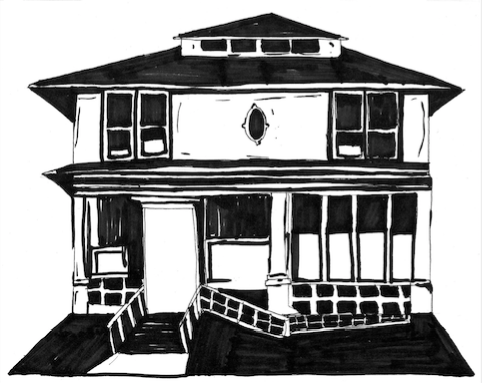Illustration by Grace O’Keefe
The Berkeley City Council voted on May 1 to extend the contract of the Dorothy Day House homeless shelter through June 30.
The shelter was originally only meant to be opened during the cold and rainy season.
The shelter is a large, city owned, building on Ninth and University. While the homeless shelter is there currently, the city has the property earmarked to eventually be affordable housing.
“[The shelter’s] warm, it’s safe, there’s breakfast and dinner, there’s an area for people to check their stuff and they can leave it there overnight and at day,” said David Stegman, executive director of the shelter. The shelter features four handicap-accessible porta-potties, and electrical outlets. The shelter is also the only one in the area with Wifi.
“I’ve seen the work that they do there — having the ability to do that for another year would do the service great justice,” said Berkeley High School senior Violet Buxton-Walsh at the council meeting. One homeless man, known as Big Red, said that he tries to make it to the shelter whenever he can. “It’s the best shelter in the area by far. I’ve been able to use [the shelter’s] Wifi to write my resume and I’ve been looking for a job,” he said.
While many councilmembers voiced concerns about how the shelter is an impermanent solution, the city has yet to find alternative housing for Berkeley’s extensive homeless population. “This is no permanent solution,” said councilwoman Sophie Hahn. “The City of Berkeley can’t solve this problem on its own.” The shelter has a capacity of ninety people, so on any given night it holds just a fraction of Berkeley’s homeless population.
The city’s goal is to eventually build more housing for “low and very low income people,” but the city has only approved building permits for less than one percent of the housing which they plan to benefit 980 people.
A survey done of Berkeley’s homeless population found that 97 percent of them would like to find permanent housing if they could afford it.
Many people at the meeting expressed that until the city can meet this demand for affordable housing, the shelter is a good idea.
“I don’t know where people are supposed to go in the middle of a housing shortage. This is a real systemic issue that is beyond the capacity of any one city,” said Councilmember Ben Bartlett.


